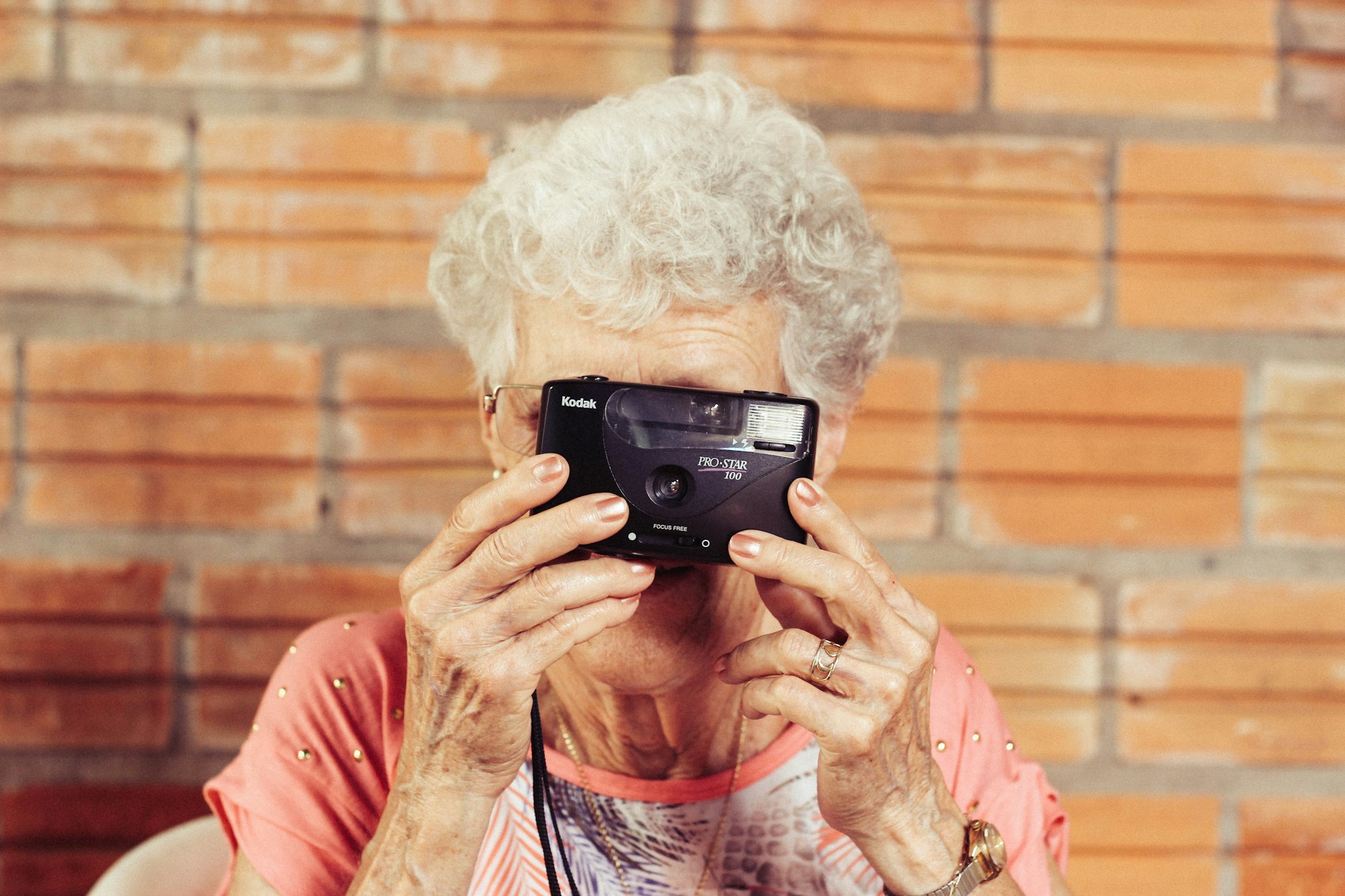Episode 1 – Betsy Wurzel – Caregiving and the Holidays


Caregiving is stressful on a good day. Join Betsy and Diane as they give you tips to help make the holidays less stressful and more enjoyable for all.
Tips to help make the holidays less stressful and more enjoyable for all
Diane Carbo: This is Diane Carbo and I am a caregiver with caregiver relief.com. And today I have Betsy Wardell she’s a dementia care specialist, caregiver coach, and a podcast host of Chatting with Betsy that can be found on the passionate world talk radio network and she also has started kick all timers ass movement group on Facebook. And today Betsy has joined me so that we can discuss caregiving and the holidays.
I’ll tell you what, I’m excited you’re here. This is a tough subject for a lot of caregivers.
Betsy Wurzel: Hi, Diane. I’m excited. Thank you so much for having me on. I appreciate it. Yes, it is a tough subject holidays. And I think Diane, because I’ve been in a lot of support groups over the years, a lot of caregivers need to learn to readjust. They have to learn to adjust themselves because we want things to stay the same. And then not going to stay the same and celebrating holidays definitely is not going to be the thing.
Diane Carbo: That you’re right about that. And as we both professionally and personally have taken care of our family members, so the holidays for me it was a hard thing for me to accept that I had to change my thinking about the holiday.
Betsy Wurzel: Yes. As far as traveling, I never had the experience in taking my husband to, the airport on a airplane.
If i were to suggest to someone who has a person with dementia. See how your person is.
Explain the situation, if you can. And when you’re on the jet, tell us stewardess, explain the situation you might have to accompany your person to the bathroom. They might be making noise. As far as traveling in a car, you really have to consider your loved one because everybody is different.
Challenges of traveling during the holidays
Some people cannot take a long car ride. They’ll get antsy. So you’ll have to stop if you are driving with someone. So is your husband or maybe a male person who has dementia? You’re a female. I would bring a male companion alarm to help with the bathroom because if someone progresses, they can’t just go into the bathroom by themselves.
It’s just not possible as my husband’s progressed. And my son had a with.
Diane Carbo: I will tell you as a nurse who has transported patients from one area to another, like from one part of the country to another, because of dementia or head injury or whatever, I didn’t always have the luxury of having someone, a male companion and what I’ve done and I will share with other caregivers is if you can’t or.
I look at it as if the gentlemen that you’re with is uncomfortable going into the ladies room with you because we have walked or, the handicapped accessible things right now, the bathrooms are available to be closed. Use the family bathrooms. But if there’s nothing available, I just, this is terrible to say, but I just go into the men’s bathrooms in the airports.
I’ve done this before. I uncomfortable for men, but I’m surprised at how not uncomfortable men are. A female is coming into the male bathroom to assist my patient or family member in the bathroom. And it works. Men are, pretty okay with that. But now we do have the family bathrooms, which makes things a lot easier for somebody [00:04:00] traveling alone when , they are having to use the bathrooms.
Using Family Bathrooms when traveling
Betsy Wurzel: Yes. Family bathrooms. I would love to see more places such as the mall had that. More than one. Yes, I agree. Unnecessary. Josh had to go in Josh’s. My son had to go in with his dad when that reached a certain point and could not go in by himself. They didn’t know what to do.
And it was fine if I went by myself to the doctor with Matt because they had, a room and I could go into the bathroom and I really, you really had to get over.
What people think is that we just tell the audience says, don’t worry what people think. Okay. Because. It’s none of your business. So what they think.
Just the worry about that when I would order my husband’s food and, cut it up for, him because in the beginning, my husband did look what you would call normal. So there probably were thinking I was over overbearing a wife. But I think Diane, that we need to set our loved ones up for success.
And not failure. Because we wouldn’t want to be set up for failure as you’re going over someone’s house. . So you’re going to a place. And now, with COVID, it’s a little different, your loved one may not tolerate wearing a mask .
I didn’t have encountered that problem, but that’s something to consider. How is your loved one and a crowd of people? If it’s too much, move into a quiet room and try to get out before some Downing does have sundowning issues. And tell your host, if it’s a family member or friend, we might have to leave by such and such a time to sundowning.
And that’s the way to educate others. I always would, tell people, educate other people. About what’s going on. And it was like July 4th, if there’s fireworks, that anybody off. Okay. That was post traumatic. Who was in the service, somebody with dementia, they can’t tolerate that.
Don’t take them to fireworks that they can’t tolerate it. You’re just setting up for a disaster. Now there’s a lot of caregivers, Diane, that would say. But I want to go to the fireworks. Why should I have to deny myself? Let me tell you something caregiver, you will eventually get to your fireworks that you won’t have your loved one with you.
You will gain your independence, but you’re not going to have your loved one. Do you want to answer while you’re left one? I’m a little, I’m a Jersey girl, so I’m very outspoken. I’m very blunt and a front and I don’t sugarcoat. But you will have to adjust. And if you don’t learn to adjust, you’re going to create more stress or not only yourself, but your loved one who is going to feel that.
And they feel our energy .And, we might be thinking about making dinner like Thanksgiving or Christmas Hanukkah, whatever holiday you celebrate. Scale it down. Do a potluck S people to bring dishes. And if it’s too much for your loved one, then you don’t have a big crowd. And as far as decorations, a lot of people with dementia are afraid.
Don’t forget, they see things different. So all those decorations that make noises when you pass by, or they could be scary to them. Remove them,. Make sure it’s safety. Yeah. And a lot of people, Diane will not [00:08:00] readjust .That just drives me nuts. It’s get over yourself.
It’s not about you caregiver. It’s about your loved one. And as far as, wrapping presents, Matt got to a point, that was my husband. He couldn’t unwrap the presence. It was frustrating to him. So I didn’t warn them. You know what Diane, I’m going to just because I am very blunt, our loved ones don’t care about a dinner.
Our loved ones don’t care about a perfect wrapped gift. What they want. They want us, they want our time, they want our love.. And that’s the best gift you could give anybody.
Diane Carbo: Exactly.
Oh, one of the things I think that you’re right about is that avoid all or nothing thinking, if people feel like if they can’t, have an activity or do something.
They won’t do anything to get all of that. And it just leaves us feeling empty. And it’s not what the holidays are about. The holidays are about just spending time with one another. It doesn’t have to have all those bells and whistles that people want.
Betsy Wurzel: Exactly.
Diane Carbo: The resulting behaviors when you put somebody in a situation that’s uncomfortable, unfamiliar or unwanted by them is not worth the hassle.
Betsy Wurzel: That’s right. And if we’re anxious because we’re rushing around trying to have have a perfect day and you’re trying to wrap the presents perfectly. Our loved ones, feel that. And they don’t want us to be stressed. They don’t want that. They want our time. And I just wanna tell caregivers, don’t worry if your loved one doesn’t know what holiday it is.
Matt didn’t know. It didn’t mean that he lost his faith. He didn’t know his own birthday. How is, how would he remember Christmas? Or the significance [00:10:00] of the holiday, but we still, I still a celebrated all holidays. I celebrated all special locations. And if your loved one is in a facility now it’s different with COVID see what their restrictions are. Bring the party to your loved one.
If you can’t bring a, a gift bring something special even to the staff. If that fits allowed now because the COVID things might have changed,
Check that your facility. My mom, my dad was in a facility and my mom used to give so grocery gift
cards to the staff. Bring in some cookies. But just make sure that’s allowed now because of the COVID restrictions. There’s ways to enjoy the holiday.
We have to remember. What’s really important, Diane, and that is sharing our loveand being compassionate and have empathy. In a lot of caregivers. Like I said, I might sound harsh, but I had to learn this myself. Or get upset about our loved one. Don’t remember our own birthday, which was a special occasion. Or a random nursery, you can’t take it personal.
It’s not that they want to forget. Their brains are dying and this is what, especially new caregivers I call them newbies , have to realize. Is that it’s not a personal issue. And I really highly recommend that new caregivers educate themselves on their loved ones dementia. Because there’s so many different kinds. Learn about the dementia become educated and you will find.
it a little less stressful because you will know what to expect. Not that it makes it any easier. Trust me, but it’s [00:12:00] in your face. It’s a lot different than reading about. It, but at least she’ll know what to expect. Exactly. .
Diane Carbo: I want to address those that have seniors that they’re trying to get them to remain at home as they age, that live alone.
So many family members they forget about them. Or think that they don’t want to bring them out now because of COVID or. Because the family member doesn’t want to go out around crowds or whatever. Because they may be in the very early stages of dementia. And those people experience loneliness, as well as having the need for others around. Even though they appear not to want that at the time.
I think , caregivers need to be aware of it’s important in the early stages.
They may not even be diagnosed , but doesn’t want to go. And what family gathering or something. You need to make extra special time or effort. Maybe not on the day of the holiday, but during that holiday time. To spend time with them, I think that’s important as well too,
to get them to feel loved and cared for. Again, it comes back to compassion and kindness.
Betsy Wurzel: Yes. Yes, definitely. And if you’re going to go out to a family dinner to a restaurant,. Please do not take your loved one out at the high busy-ness times. Because they will not be able to tolerate the noise. Go off hours. And you know why you don’t always have to celebrate on the day of.
You could go anytime. Which is what I used to do. I definitely used to do it.
Diane Carbo: I did that as well. I did things that off times with my dad, when he became ill. And and he just, it has created a cancer, , He wasn’t a big eater, .But he was having problems with blood sugar. But I understand, we wanted to, go in when we want, enjoy our time and make it feel a little special, but we do this maybe the day before or the day after, or at an off time.
When there was less confusion and less busy ness.
Betsy Wurzel: As our last anniversary that we celebrated within 2019, and I took Matt to a local luncheonette.
And he had significantly progressed. And he couldn’t take being there the whole time. So I just got it wrapped up. And I fed him at home. And this is what you have to do.
Go with the flow.
Diane Carbo: Absolutely be flexible.
I think the other thing you need to do is plan a special activity. maybe it’s a religious service. Maybe it’s a special treat, like the green bean casserole. Something silly like that, what, if that’s important to somebody and it makes it feel like a holiday to them, then make an effort. And do just that. Even if it’s just sitting on a TV tray in front of the TV, watching fireworks and eating
Betsy Wurzel: I think, yeah.
Diane Carbo: Feel like you’ve focused on things that are important to them. They may not remember it. The next day. For some, family members because of their dementia has advanced. But I will tell you that one of the things that slows the progression of dementia is doing something new and different social interactions, important.
Those things help people maybe slow dementia. It’s a thought that they’re saying that, studies show, in social interactions and stuff can slow it. Make that an important part of your activity for the holidays.
Betsy Wurzel: Absolutely. Diane, I used to feel this way. Live life. Whether you have dementia yourself or your loved one.
Go out. Enjoy [00:16:00] life.Celebrate every occasion. Whether they remember or not. And just enjoy being with them. Take your loved one out as much as you can, while they still can go out and enjoy themselves.
Diane Carbo: Absolutely. And I think if there’s anything that we have had to learn through this COVID crisis pandemic is to, seize the moment.
And enjoy what you can when you can, because you don’t know when it’s going to be taken away from you.
Betsy Wurzel: Absolutely. And even go into looking around, at the mall. I live in New Jersey. So New Jersey is very high pace. Everyone’s in a rush. I wouldn’t take Matt out when it was very busy .Because I knew he couldn’t tolerate.
But Matt loved to have his frappuccino, Starbucks. He loved that. So we would get our drinks and we would sit down. Was it difficult? Matt didn’t want to be in the wheelchair. So I knew it would take awhile to get from one spot to the other. Or you don’t do as much. And, I know I I found it really hard, Diane to readjust.
I had to .Come to the point where I said, I have to adjust. I can’t do the things that I used to do. I eventually will. Matt will never get his independence. I will. But Matt, won’t be here. That’s a hard pill to swallow. .
Diane Carbo: It is reality and change is hard for everybody. Whether it’s the patient or your family member or you, the caregiver. Change is hard and accepting it is hard. but it has to be, if you’re going to have success at taking care of your husband or family member at home.
Betsy Wurzel: Yes. You have to roll with the flow. Be fluid, just like water. And go with it, and I had to teach my son that things change. Plans change. .Holidays change ,.Even listening to Christmas music or whatever.
Music might get to a point where your loved one doesn’t want to hear it. .That bothers them. So play something that they like to hear. And you just never know. Cause what works one day may not work the next .You’d have to constantly change. We just, when you think you have it figured out things change again.
Diane Carbo: And that’s with seniors, even without dementia. A fall or a hreat atack Things change. So you have to be ready for those changes, during, before and after holiday.
Betsy Wurzel: Yes. Yes. I just, I want people to realize. What you used to do. Will change. That’s a sign and you’re either going to accept it. [00:19:00] And you might resent accepting it. But you know what, you’re only going to make it harder for yourself.
Trust me. I’ve been there. Been there. I have done that. You really need to let go of whatever resentment. Hostility that might cause .You know, some people, Diane, they go I want my decorations up. I don’t care if that bothers my loved one. You will care when they start hallucinating. And they think that Santa Claus figurine is the monster or a man in the room.
Don’t put your loved one in a situation. That’s going to create a problem. Remove the problem. If you can. You will get to put the Santa Claus back. And you really have to be very careful. People with dementia, don’t see things the way we do. They have visual problems. They have visual perception problem. That the Santa Clause there may be an elephant in the room. They don’t know that.
They see things different than we may see [00:20:00] them, but they pick up on our stress levels as well, and that creates stress for them . They respond to us when we’re trying to respond and control the situation. It doesn’t make it easy for anybody.
Diane Carbo: That’s right. It’s and it is hard to remain calm and happy all the time. And I want caregivers to know Diane. They don’t have to be perfect. They’re not going to be perfect. I’m not a perfect person. I was not a perfect caregiver. If anyone out there is a perfect caregiver, please introduce yourself to Diane. And I, cause we would love to interview nurses who were not perfect.
Betsy Wurzel: That’s right. I snapped but make it easier on yourself. Take shortcuts and cooking if you have to. And this is what , we really need to, we used to bake a lot of cookies and you can’t, you don’t do it. [00:21:00] And this is a great time, Diane, before the holidays, it’s to talk to family members.
And to try to educate them, .Now you can lead a horse to water, but you can’t make them drink. Educate your family. This is what dad is like. Now this is why mom is this is my grandma. And it’s not your responsibility, how they accept the information. Your responsibility is just to give the information. And what they do with that is up to them, not up to you.
Diane Carbo: Very good point that you’ve made there.
Betsy Wurzel: I learned this through, many years of experience. My mother-in-law I say she took me to Alzheimer’s school. Because I did not know what or heard of Alzheimer’s when my mother-in-law was diagnosed. I worked as a licensed practical nurse. Never heard it in nursing school. It was called other names. Hardening of the arteries, organic brain syndrome. I never heard the word Alzheimer’s and I was talking about [00:22:00] not knowing anything. And back then, Diane, there wasn’t the information highway. There is today.
There’s so much available today for caregivers.
And it’s up to you caregiver to educate yourself. Because no, one’s going to spoon feed you. You have to want to educate yourself. That’s not putting anybody down.I had to educate myself. And even though what I went through with my mother-in-law, when my husband had early onset, I had educated myself about that.
And there’s a saying, when you meet one person with dementia, you missed that one person because everybody is different.
Diane Carbo: I was just going to say that. People don’t realize there’s a one there’s over 200 types of dementia. And there’s so many different parts of the brain that are negatively impacted [00:23:00] by a type of dementia. So whether it’s Alzheimer’s or Lewy body dementia, or another form of dementia alcoholic induced it doesn’t matter. If you’ve seen one dementia, any kind of dementia.
You’ve only seen one type of dementia .Because people respond so differently. .I presently am in a situation where I have a client. He’s not able to talk. He has dementia he’s he walks he looks normal. He does have great facial expressions, but his verbal skills are pretty much gone. And you really have to be in tune. Especially during the holidays or around crowds because he’s not able to express himself in a normal fashion. And that’s another thing people have to understand. People respond differently to different situations. I’m an old seasoned rehab I’m seasoned rehab nurse. And I don’t like to create dependence. I like to encourage [00:24:00] independence for as long as possible. And I think the holidays put such an undue amount of stress on somebody. The ability to lessen that stress on themselves and on their loved ones..
Betsy Wurzel: Absolutely. As Diane, the mortality rate for caregivers has gone up. I think it’s 55 or 65%. It’s way up there from the past. Caregivers, you need to take care of yourself. And that’s a whole another show of self care.
Diane Carbo: That’s a whole another show. Remember caregivers that you’re the most important part of the caregiver equation. And without you, it all falls apart. So practice self-care everyday because you are worth it. Thank you joining me today.
Betsy Wurzel: you’re welcome. And thank you, Diane. I loved being on your podcast and talking and looking forward to many more podcasts. Thank you. Talk to you soon.
You might also like this article:











